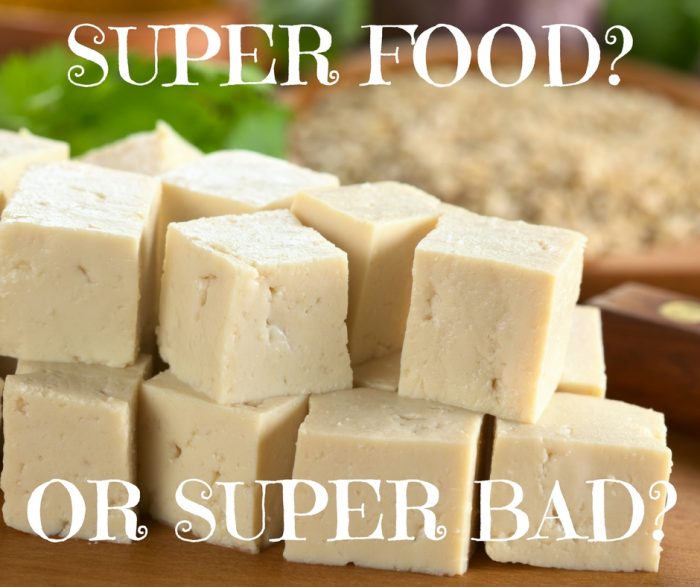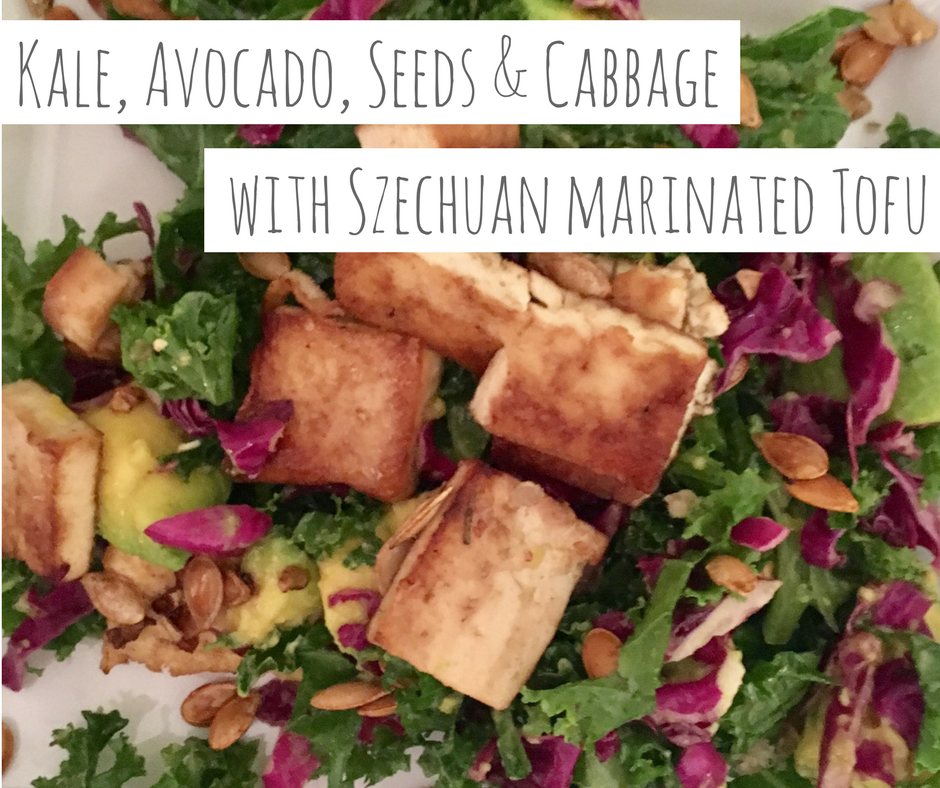WHAT DO SOY, MENOPAUSE AND OKINAWANS HAVE IN COMMON?

Happy Friday!
Soy is a sensitive subject. Is it bad, is it good, is it both bad and good? In this post I try to make sense of soy and namely tofu. I’ll tell you right off the bat my take on soy- it rocks my world! Organic, sprouted tofu provides a good source of protein and is incredibly satisfying to the palate. I make Szechuan marinated tofu probably once a week. When prepared correctly, tofu is slammin’ good.
But what about the media coverage? Can soy increase your risk of breast cancer, lead to Alzheimer’s or block your thyroid function? I was concerned when I first heard these reports. I have a client and dear friends who are breast cancer survivors. My friend’s father passed away at an early age from Alzheimer’s. I wanted to make sure that I had all the facts straight before recommending tofu or consuming it myself.
The general rule when it comes to soy:
- Eating processed soy/genetically modified soy/ soy protein isolate is generally NOT RECOMMENDED.
- Eating whole, real soy/organic, fermented soy in moderation is A HEALTHY CHOICE.
Dr. Mark Hyman (one of my favorite people) includes organic, fermented soy in moderation as part of a well-rounded diet. He explains the myths and the benefits in his article, “How Soy Can Kill You and Save Your Life.” Dr. Hyman states, “In truth, good human studies on soy are limited, but those we do have suggest that soy may help lower cholesterol, prevent cancer, increase bone density, protect the kidneys of people with diabetes, and relieve menopausal symptoms like hot flashes.”
centenarian okinawans – living longer and seemingly happier lives
If you need more convincing, the Okinawans, indigenous islanders from Japan, have a life expectancy among the highest in the world. For thousands of years, they have consumed whole, organic and fermented soy foods. Tofu is just one example of a fermented soy food. Others include miso, tempeh, soy milk and edamame.
soy for improving symptoms of menopause
While I have yet to experience menopause, I know it will come one day. I hear nightmare stories from friends and colleagues about menopause symptoms and I’m determined to find a solution when my time comes. There is good evidence that soy could be very helpful for women experiencing painful and annoying symptoms of menopause. From the Okinawa Centenarian Study– “Women in Okinawa tend to experience menopause naturally and nonpharmacologically with fewer complications such as hot flashes, hip fractures, or coronary heart disease. Lifestyle determinants include diet, avoidance of smoking and exercise in the form of dance, soft martial arts, walking and gardening. Okinawan women also have a very high intake of natural estrogens through their diet, mainly from the large quantities of soy they consume.”
Soy is not solely responsible for this culture’s longevity. Centenarian Okinawans believe in living a life with meaning and purpose. They eat a predominately plant-based diet and while they do eat small amounts of fish and pork, it’s reserved mostly for special occasions. I think it’s important to note that they use every part of the animal, wasting nothing. They are also an active culture enjoying gardening, walking and light dancing. Finally, they are a social people, creating moais or ‘social support groups.’ Talking, sharing and unloading problems balances the stress in their lives.
Centenarian Okinawans also tend to drink alcohol in moderation – generally women have about one drink a day and men have about two drinks per day. That is in line with the Harvard Nurses Health Study’s recommended amount of alcohol to consume to lower the risk of cardiovascular disease. Good news for those of us who like a cocktail or glass of wine now and again.
If you find Centenarians as fascinating as I do, you may enjoy this article from NPR Eating To Break 100: Longevity Diet Tips From The Blue Zones. Really powerful stuff.
Ready to cook? Speaking of cooking, I am excited to announce that I am starting a monthly cooking class at Unity by the Bay. Click here for more information. Our first class is March 4th.
Ingredients
- 10 ounces (1/2 a block) organic, sprouted tofu - I like the Wildwood brand
- 2-3 tablespoons Coconut Amino Acids or Bragg's Amino Acids or Soy Sauce - People with Celiac or gluten sensitivities should stick with Coconut Amino Acids
- 2 tablespoons agave sweetener
- 3-4 gloves of freshly minced garlic
- 1 to 1 1/2 tablespoons freshly chopped ginger root
- 2 tablespoons raw, organic, unrefined coconut oil
- 4-5 large leaves of kale, chopped
- 1 cup sliced purple cabbage
- 1 avocado cubed
- roasted pumpkin or squash seeds (optional)
Instructions
- Combine the aminos or soy, agave, garlic, ginger and coconut oil in bowl or glass measuring cup.
- Slice tofu into 1/4 inch blocks widthwise.
- If you have time, marinate the sliced tofu in your sauce for 30 minutes to several hours. If not, skip to the next step directly.
- My preference is to lightly fry the tofu in a large cast iron pan until you achieve a golden brown color with a light crisp on the outside. However, if you do not use cast iron, you can also bake your tofu at 375 degrees in a single layer on a cookie sheet or glass rectangular casserole dish. If you use the oven, cook it for about 20-25 minutes and broil it at the end to achieve a golden brown outer layer.
- While the tofu is cooking, prepare your salad by combining the kale, cabbage, avocado and seeds. Add any additional veggies you like to your salad and top with dressing of choice. See below for my nutty salad dressing recipe.
- Top salad with tofu (you can slice it into smaller cubes if you like) and enjoy.
If you want to try a great, super tasty, super healthy salad dressing, click here for my nutty salad dressing recipe.
HEALTHY COOKING WITH SUSIE AT UNITY BY THE BAY – I AM STARTING A MONTHLY COOKING CLASS AT UNITY. OUR FIRST CLASS IS SATURDAY, MARCH 4TH. CLICK HERE FOR MORE INFO AND TO SIGN UP.
READY TO TAKE YOUR HEALTH AND WELLNESS TO ANOTHER LEVEL THROUGH STRUCTURED HEALTH COACHING? CLICK HERE FOR A FREE 30-MINUTE CONSULTATION AND REVIEW OF YOUR HEALTH HISTORY.
ENJOY A 15% OFF DISCOUNT ON PRODUCTS AND SERVICES NOW THROUGH APRIL 15TH.



